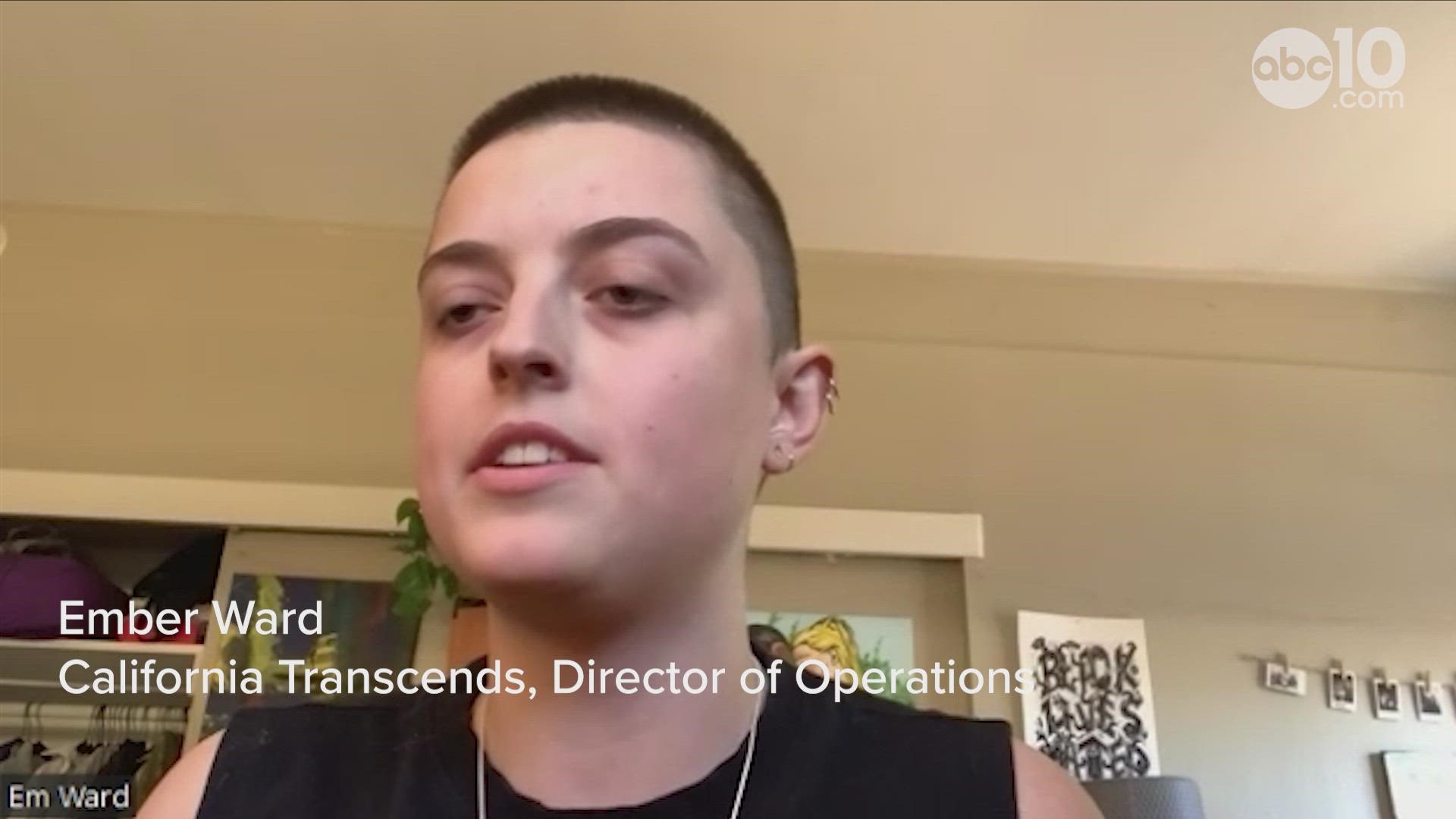SACRAMENTO, Calif. — The U.S. Supreme Court's decision to overturn the landmark Roe v. Wade abortion ruling is heightening concerns among LGBTQ+ rights activists.
On Friday, Supreme Court Justice Clarence Thomas wrote a concurring opinion, arguing that the highest court should also reconsider other precedents, including the legalization of same-sex marriage and the right to contraception.
Local advocates said they anticipated this as soon as they saw the leaked draft opinion obtained by POLITICO, which suggested the Supreme Court was poised to overturn the 1973 Roe v. Wade case.
"We started mobilizing because we knew... this decision is something we would have to deal with in the very near future," said Alexis Sanchez (She/Her), the director of advocacy and training for the Sacramento LGBT Community Center.
Sanchez said abortion services are just a fraction of what Planned Parenthood provides. The nonprofit organization also provides general health care, STD testing, men's health services, transgender hormone therapy and more.
"I think states like Texas, which have empowered folks to be able to sue abortion providers, are going to make it difficult for organizations like Planned Parenthood to exist, which then in other states takes away another provider for transgender-related care," said Sanchez.
For Ember Ward (They/Them), who identifies as a transmasculine non-binary person, these concerns are highly personal.
"Often folks such as myself don't get included in this conversation. I think it's important we acknowledge the diversity of experiences within our communities and we honor those and put those stories to the forefront," said Ward.
Ward is also the director of operations for California TRANScends, a statewide initiative working to promote the health and wellbeing of transgender individuals. They described what lack of access could really mean.
"Contraception can be required just so hormones and reproductive organs function properly. With contraception being way harder to acquire, it's going to further complicate these barriers," Ward said. "In terms of gender-affirming care... (it's) a lifesaving medical treatment."
Ward said being forced to carry a pregnancy to term will also have severe consequences for trans men and non-binary people in particular, such as having to experience gender dysphoria.
"It's a general feeling of physical alienation from one's body. If you're looking in a mirror and you cannot recognize yourself, it can be really difficult to feel like you have control of your life and what you're doing with your body," said Ember Ward (They/Them), the director of operations for California TRANScends.
It's an experience they're familiar with.
"I have delayed getting a Pap smear out of both just dysphoria of having to access women's services when I'm not a woman and the trepidation that my doctor will not understand how to care for me at best and then at worst, will actively harm or discriminate against me," Ward said.
They're not alone.
According to a 2020 State of the LGBTQ Community report by the Center for American Progress, 15% of LGBTQ Americans reported postponing or avoiding medical treatment due to discrimination. That included nearly three in 10 transgender individuals. One in three transgender individuals also reported having to teach their doctor about how they can give appropriate care.
The state of California has a "pretty robust" set of protections for LGBTQ+ individuals, according to Sanchez, but that doesn't mean California isn't immune to other issues.
"The state is still in a housing crisis... the average rent in the state is sky high," Sanchez said. "I think we're poised to be a sanctuary state, but it's only set up to be for those individuals who can afford to live in California."
► Get more stories about race and culture: Sign up for our newsletter at www.abc10.com/email and find more online in our Race & Culture section.
Sanchez said, right now, the most important thing for people to be aware of is their rights.
While 13 states have abortion trigger bans that are designed to take effect now that abortions are no longer constitutionally protected, not all of them have been implemented immediately. Some states' laws require a 30-day waiting period, including Texas.
Now, the Sacramento LGBT Community Center is focused on filling community needs, wherever they're needed.
"We are working at the local, state and federal level always to try to pass more robust protections for LGBTQ+ individuals.... and supporting abortion providers wherever we can as well," Sanchez said.
WATCH ALSO:

